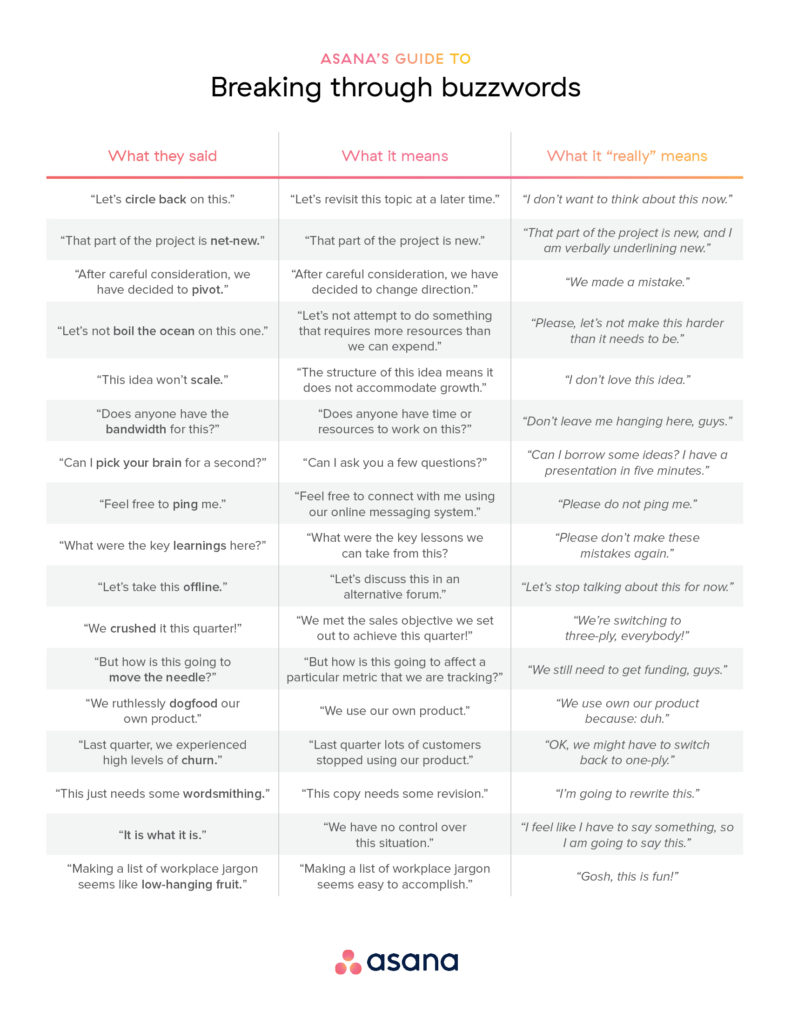Asana’s corporate jargon cheat sheet
The philosopher Étienne Bonnot de Condillac observed in 1782 that “every science requires a special language because every science has its own ideas.” Nowhere is that more apparent than the modern workplace. Jargon is everywhere.
Rather than improve understanding however, corporate double-speak can obfuscate and confuse. Worse, it can make you feel unempowered. Jargon is supposed to be shorthand for people “in the know” (like people of a certain profession or social group), but jargon can also act as a Shibboleth; when you don’t understand what’s being said, it can make you feel like an outsider, or like you’re uninformed.
And let’s face it, jargon is just plain annoying.
Meet the cheat sheet
Since Asana wants to promote clarity around communication at work, we’ve collected the most common phrases heard around our office. The result is this handy reference for teams:

We’re all guilty of using buzzwords and putting this document together taught us how much they can sneak their way into our vocabularies. Hopefully this cheat sheet can help your team communicate more clearly, going forward. 😉
Feel free to share—or print this out and post it at your home, office, RV, or anywhere else jargon is spoken.
Have you heard any jargon that bothers you, or that you don’t understand? Please tell us in the comments!
More Issues
